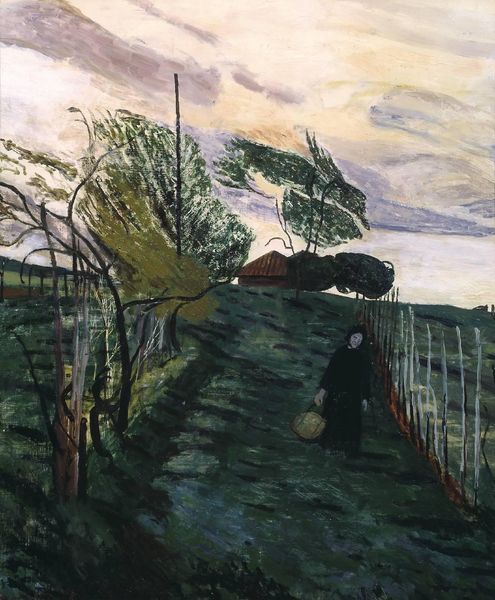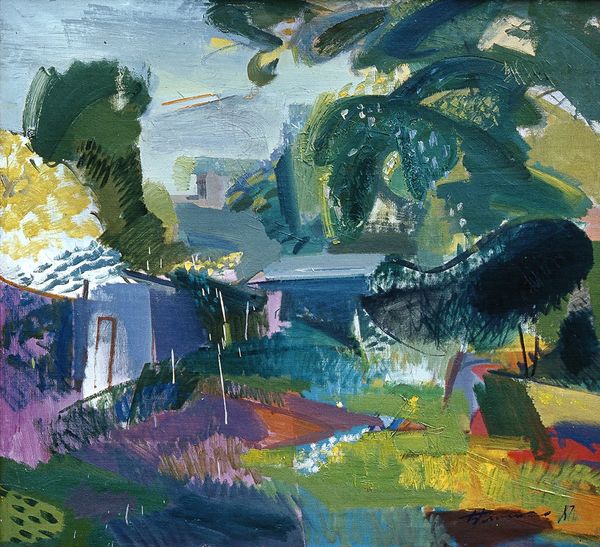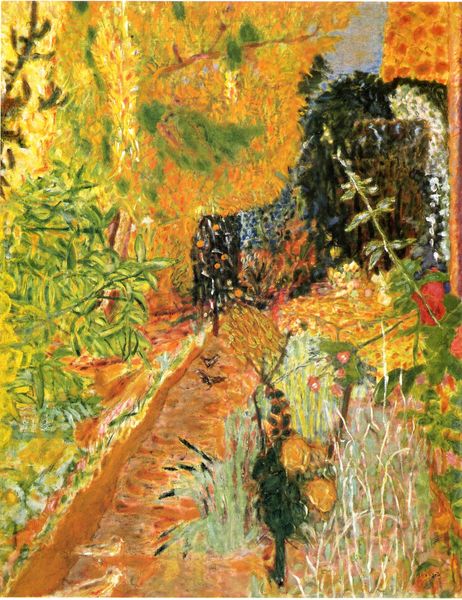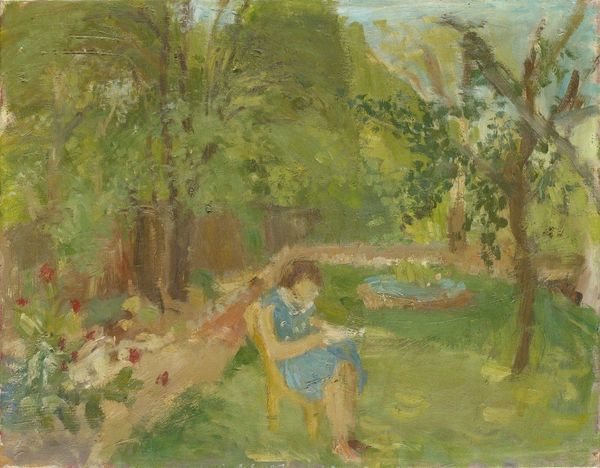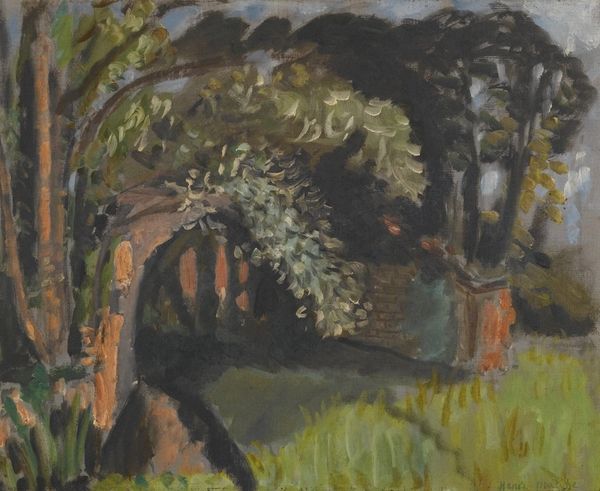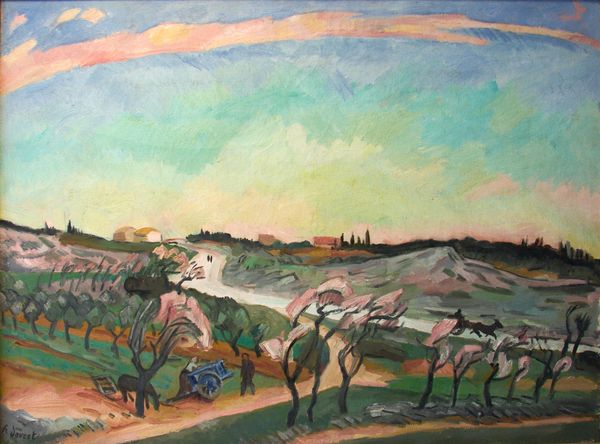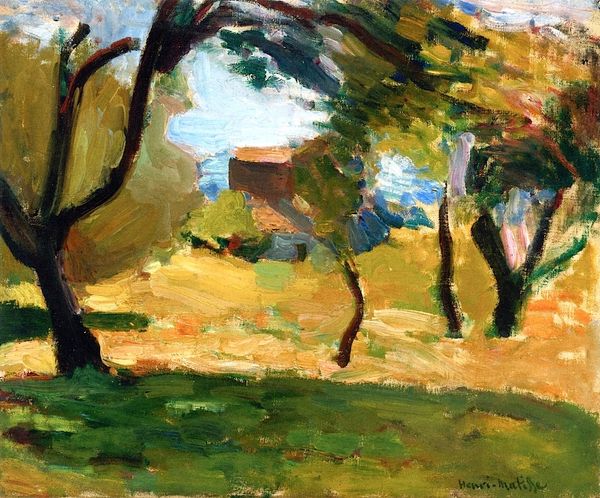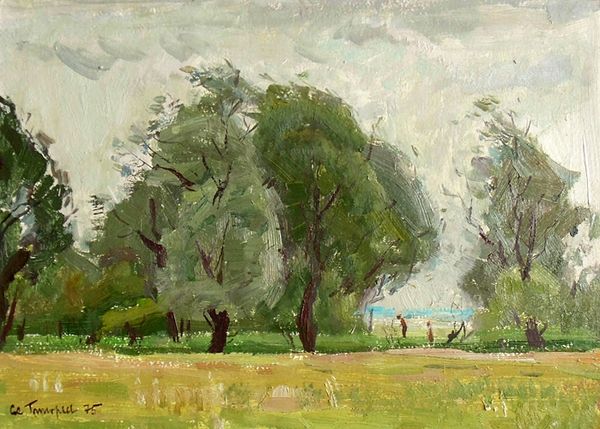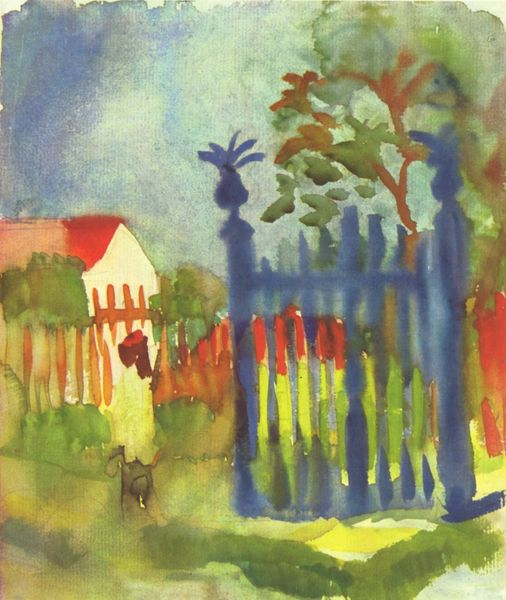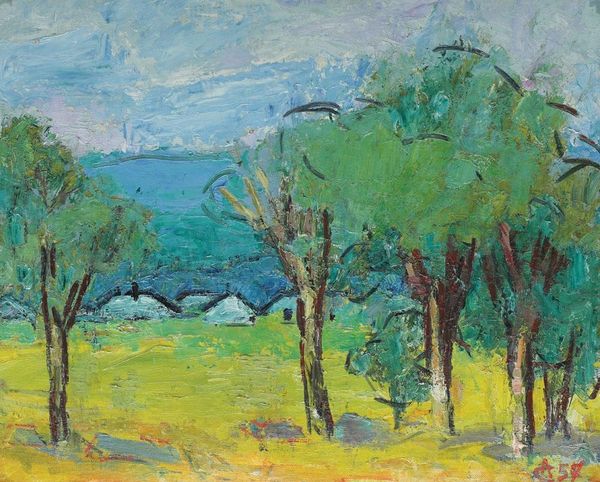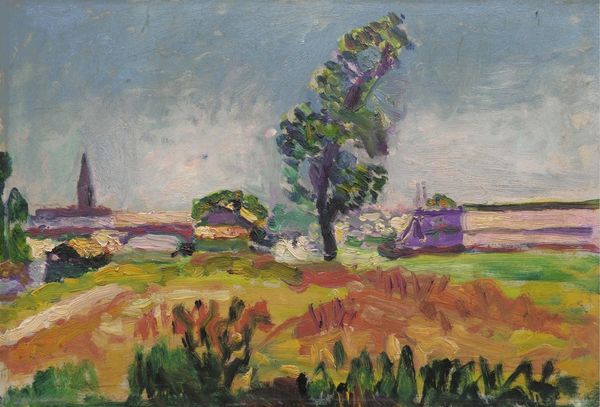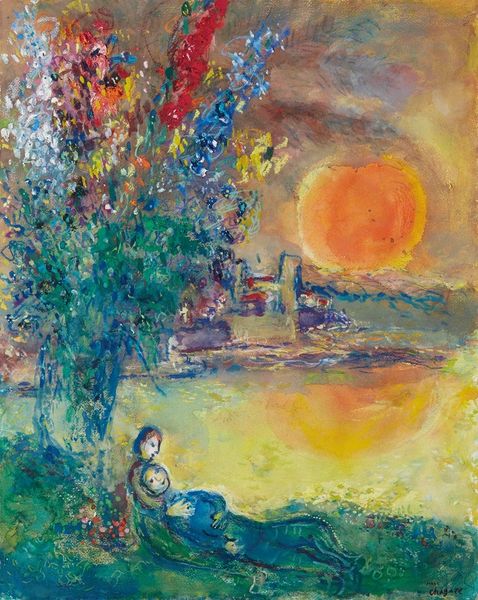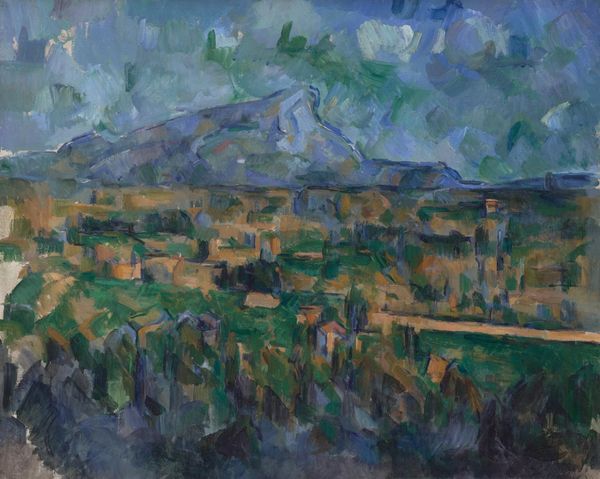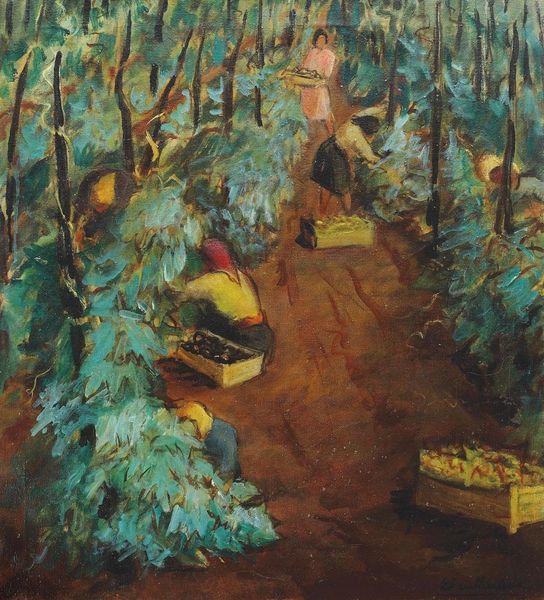
Dimensions: support: 495 x 645 mm
Copyright: © The estate of Anthony Gross | CC-BY-NC-ND 4.0 DEED, Photo: Tate
Editor: This painting, "La Route de Ste Livrade" by Anthony Gross, feels like a snapshot of rural life. The composition is divided in two contrasting halves. What do you see in this piece, considering its public role? Curator: This division highlights a societal tension, perhaps between labor and leisure. The active harvest versus the leisurely stroll. Given Gross’s WWII experience, could this imagery reflect a longing for simpler times, a pre-war idyll presented for public reflection? Editor: That's a great point. The contrast between the peaceful walk and the hard work really does tell a story about society at the time. Curator: Exactly! It makes us think about who art is for and what stories it chooses to tell about the world around us.
Comments
tate 9 months ago
⋮
http://www.tate.org.uk/art/artworks/gross-la-route-de-ste-livrade-t03328
Join the conversation
Join millions of artists and users on Artera today and experience the ultimate creative platform.
tate 9 months ago
⋮
Gross moved to Paris in 1927 and chose to go south to paint. He lived and worked for a while in Brive-la-Gaillarde, Toulouse and St Tropez. Gross felt that he achieved a breakthrough in his work in St Tropez, learning from the work of Van Gogh how to be more spontaneous in his painting. Gross moved back to Paris in 1929 but spent his summers from 1930-33 in Villeneuve-sur-Lot. This painting shows Gross's wife, the artist Daisy Florenty, on foot, and her niece Huguette on a bicycle. When Gross painted in the South of France his colours were brighter than those used for painting life in the industrial suburbs of Paris. Gallery label, September 2004
